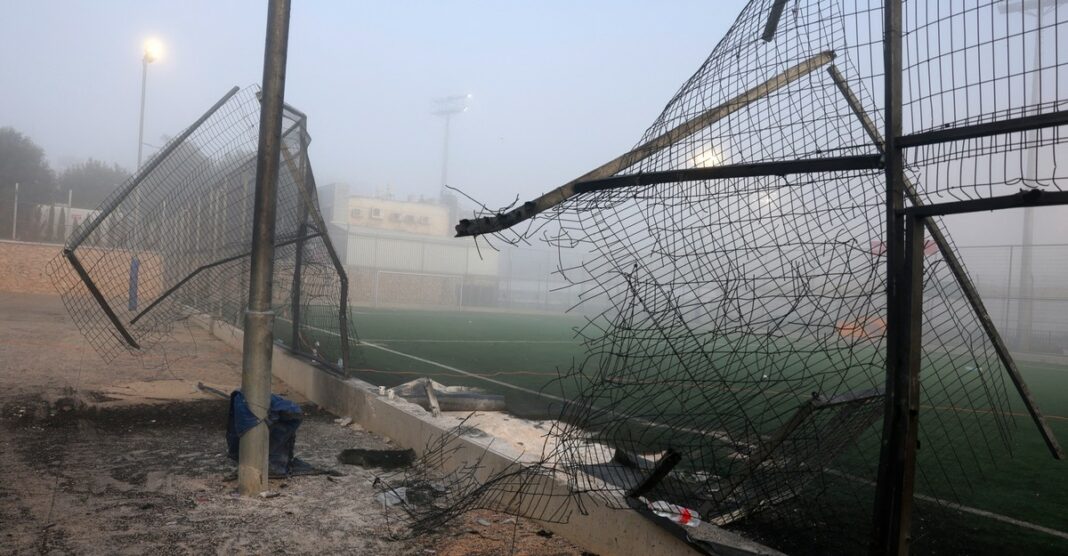The Big War No One Wants in the Middle East
As tensions continue to escalate in the Middle East, the prospect of a major war looms large. Despite the efforts of diplomats and world leaders to prevent such a conflict, the region remains a powder keg of political rivalries, longstanding grievances, and competing interests. The stakes are high, with potentially catastrophic consequences for the people of the Middle East and the global economy.
The Players
One of the key players in the region is Iran, a country that has long been a target of Western powers due to its nuclear program and support for militant groups. The recent assassination of a top Iranian general by the United States has only inflamed tensions further, with Iran vowing to retaliate against what it sees as an act of war.
On the other side of the conflict are the United States and its allies, who see Iran as a destabilizing force in the region. The U.S. has also been backing Saudi Arabia in its proxy war with Iran in Yemen, further complicating the situation.
The Flashpoints
One of the major flashpoints in the Middle East is Syria, where a civil war has been raging for nearly a decade. The conflict has drawn in multiple outside powers, including Russia, Turkey, and the U.S., each with their own interests and agendas. The situation in Syria is further complicated by the presence of extremist groups like ISIS, who continue to operate in the region despite being pushed out of their strongholds.
Another major flashpoint is the Gulf region, where shipping lanes crucial to the global economy are under threat from Iranian-backed militias. The U.S. has responded by increasing its military presence in the region, leading to a dangerous game of brinkmanship that could easily spiral out of control.
The Consequences
If a major war were to break out in the Middle East, the consequences would be severe. The region is home to some of the world’s largest oil reserves, making it a crucial hub for global energy markets. A disruption in the flow of oil from the Middle East could lead to a sharp increase in prices, causing economic chaos around the world.
There would also be a human cost to such a conflict, with millions of people likely to be displaced or killed as a result of the fighting. The already devastating refugee crisis in the region would only worsen, putting further strain on neighboring countries and the international community as a whole.
The Path to Peace
Despite the grim outlook, there is still hope for peace in the Middle East. Diplomatic efforts continue to be made to de-escalate tensions and find a political solution to the region’s conflicts. The recent peace agreements between Israel and some Arab states are a positive step forward, although they do little to address the underlying issues that continue to fuel instability in the region.
Ultimately, the key to preventing a major war in the Middle East lies in a comprehensive, inclusive approach that takes into account the interests of all parties involved. This will require difficult compromises and a willingness to engage in dialogue, even with adversaries. The alternative is too grim to contemplate.
Conclusion
The Big War No One Wants in the Middle East is a looming threat that must be taken seriously by the international community. The consequences of such a conflict would be catastrophic, both for the people of the region and for the global economy. Now is the time for world leaders to step up and work together to prevent this disaster from becoming a reality.
FAQs
Q: What are the main factors driving the tensions in the Middle East?
A: The main factors driving tensions in the region include geopolitical rivalries, sectarianism, and competition for resources like oil and water.
Q: Is there any hope for peace in the Middle East?
A: While the situation is dire, there is still hope for peace through diplomatic efforts and political solutions that address the root causes of the conflicts in the region.
Q: What can ordinary citizens do to help prevent a war in the Middle East?
A: Ordinary citizens can support peacebuilding efforts, advocate for diplomatic solutions, and stay informed about the situation in the region to push for peaceful resolutions to conflicts.




